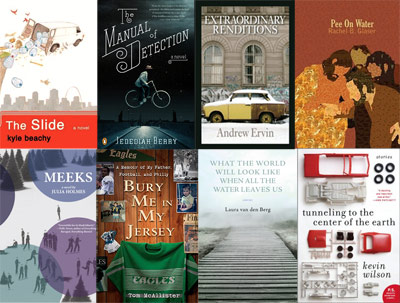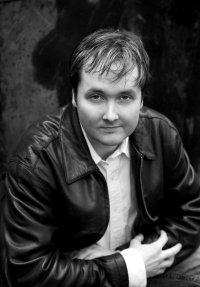
- (Photo by Miriam Berkley)
Kyle Minor is the author of In the Devil’s Territory, a collection of short fiction. Other recent work appears in The Southern Review, HarperCollins’s Fifty-Two Stories, Random House’s Twentysomething Essays by Twentysomething Writers, and Best American Mystery Stories 2008.
Q (Meg Pokrass): Which authors (throughout your life) have influenced you the most? Which authors have influenced you the most over the past five years?
When I started writing, I wanted to be a writer like David Foster Wallace, Don DeLillo, or Kurt Vonnegut. Some writers who actually influenced my first book: Andre Dubus, Katherine Anne Porter, Alice Munro, Larry Brown. By then I had downshifted at the level of language in order to try to accommodate some darker psychology.
The first book was formally dexterous. It’s got a single-movement single-I narrator, a double close 3rd in two asymmetric parts that are symmetrical at their ends, a double-I that is progressive over a lifetime’s worth of events, a dramatic monologue in the mouth of an illiterate, a Chekhovian 3rd, and a first person narrator who assumed omniscience enough to imagine the interior lives of his father and his old fifth grade teacher. I learned while writing it that my primary gift wasn’t with the epiphanic — it was with juxtaposition and accumulation — and that I had the ability to inhabit a multiplicity of voices (after the manner of writers like Jim Shepard or John Cheever or Jeffrey Eugenides, say) more than I was a writer of a great and powerful singularity (like DeLillo or Wallace.)
What now? I want to be more influenced by the colloquial, the high and grand, the genres (especially noir), and especially the Jewish writers I most admire (Philip Roth, Isaac Bashevis Singer, Cynthia Ozick, Nathan Englander, Bernard Malamud, etc.) At the same time, I feel the pull of the plainspoken, chronologically linear third person (as in John Williams’s Stoner.) I’ve spent much of the last nineteen months writing an epistolary novella that owes much to Alice Munro, who is possibly the most experimental writer alive.
Have you had mentors? Do you mentor?
I’ve had some very good teachers: Lee K. Abbott, Erin McGraw, Michelle Herman, Lee Martin, Bill Roorbach, William Bowers, Andrew Hudgins, David Baker, Kathy Fagan, Jon Saari, Mike Rich, Nancy Zafris, Michael Curtis. I’ve also been lucky to be in contact with writers whose lives I one way or the other admire, and who I think of as models, I guess: Pinckney Benedict and Laura Benedict, Chris Offutt, Edward Falco, Christopher Coake, Donald Ray Pollock, Rodney Jones. I’ve tried to apprentice myself to writers I’ve never met, through their work: Philip Roth, Alice Munro, Stephen Dixon, John Cheever, Edwidge Danticat, Denis Johnson, Richard Price, William Faulkner, Andre Dubus, etc.
I do have students of my own, and so many that proper mentoring seems out of reach, most of the time. You just try to give them as much of what you know as you can when you’re around them. But once in awhile someone of great promise comes along, and it’s difficult to avoid spending the extra time with them that their work and effort has earned, so you do it.
How do you stay creative? What are your tricks to get “unstuck?”
I just work every day. I don’t know that I’m even “creative.” Maybe once every two or three years you get that piece that’s a gift — it just comes in a rush, and it’s whole, and it’s good, and you ride it until it’s done. For me, that’s usually an essay — the first major draft of “You Shall Go Out with Joy and Be Led Forth with Peace,” from Twentysomething Essays, came this way, and also “There is Nothing but Sadness in Nashville,” which will be published later this year in Arts & Letters. But most of the time, I’m just grinding it out daily, draft after draft. Being “stuck” is a daily condition, and I wish I knew some easy to truck to get unstuck. What I do is just try and try again.
Do certain themes emerge in your work, ideas and themes that seem to keep coming back to you in different forms?
It’s difficult to escape childhood stuff — the family of origin, the childhood fears, the specter of religion. I’ve been thinking a lot about death, about how time reduces possibility, about class inequities, about how our walled-off interior lives and competing agendas make it difficult for us to connect with one another.
I’ve been thinking more generally about form, too, and the under-appreciated role it plays in meaning-making. Formal concerns, particularly with regard to structure and point of view, receive a considerable percentage of my attention.
What is new in your world? Tell us about what is going on/ what are you working on now?
I’m almost done with a new story collection. I’ve been back-and-forth between here and Haiti for a couple of years, working on a nonfiction book. I’ve got a novel going, too. And I’ve been writing these weird one-page stories, many of them metafictional, and publishing them at obscure websites, for fun, and to work out things I’m not temperamentally inclined to give space in the longer fiction.
Where would you like to live if you could choose?
Brooklyn, Budapest, somewhere in northern Italy, San Francisco, Ouest Province in Haiti.
What is your favorite new music? Does music influence your writing on a (somewhat) conscious level? Does film?
I often listen to music when I’m writing — Vic Chesnutt, David Bazan, Johnny Cash, the Gorillaz, Gnarls Barkley, Lou Bond, Bob Dylan, The Breeders.
I don’t want movies while I’m writing. Some movies I wish I could find a way to absorb as influences: The Killing of a Chinese Bookie, Alpha Dog, The Royal Tenenbaums, The Visitor, Brothers, The Anniversary Party, Tetro, Magnolia, Lost in Translation, The Conversation, The Red Violin, Apocalypse Now, Taxi Driver, Ghosts of Cite Soleil, The Five Obstructions, The Company, Goodbye Lenin!, In America, Inventing the Abbotts, 25th Hour, Good Will Hunting, Taken, Punch-Drunk Love, Amelie, The Heffalump Movie, Funny People.
We would love your recommended reading list!
Sure enough. Here it is! Some Books I Have Stacked in a Pile Near My Desk Because I Want to Re-Read Them Soon:
Louis Auchincloss, The Rector of Justin
Lee K. Abbott, All Things, All at Once
James Baldwin, Going to Meet the Man
Pinckney Benedict, Town Smokes
Thomas Bernhard, Correction
Bonnie Jo Campbell, American Salvage
The Stories of John Cheever
Joshua Cohen, Witz
J M Coetzee, Disgrace
Edwidge Danticat, Brother, I’m Dying
Paul Eggers, How the Water Feels
Stephen Elliott, Happy Baby
Shusaku Endo, Silence
Nathan Englander, For the Relief of Unbearable Urges
Gabriel Garcia Marquez, Chronicle of a Death Foretold
Barry Hannah, Airships
Michael Herr, Dispatches
Andrew Hudgins, American Rendering
Denis Johnson, Jesus’ Son
Edward P. Jones, All Aunt Hagar’s Children
Rodney Jones, Elegy for the Southern Drawl
Stephen King, The Shining
Milan Kundera, The Book of Laughter and Forgetting
Jonathan Lethem, Motherless Brooklyn
Alice Munro, Open Secrets
Vladimir Nabokov, Pale Fire
Joyce Carol Oates, The Assignation
Tim O’Brien, In the Lake of the Woods
Cynthia Ozick, The Shawl
Molly Peacock, Original Love
Donald Ray Pollock, Knockemstiff
Katherine Anne Porter, Pale Horse, Pale Rider
Richard Price, Clockers
Mark Richard, Charity
Philip Roth, Sabbath’s Theater
Philip Roth, American Pastoral
Norman Rush, Mating
Isaac Bashevis Singer, Collected Stories
Frank Stanford, The Light the Dead See
Emma Straub, Fly Over State
Wislawa Szymborska, Selected Poems
Studs Terkel, Hard Times
David Foster Wallace, A Surprisingly Fun Thing I’ll Never Do Again
Lawrence Weschler, Vermeer in Bosnia
John Williams, Stoner
The Fictionaut Five is our ongoing series of interviews with Fictionaut authors. Every Wednesday, Meg Pokrass asks a writer five (or more) questions. Meg is an editor at Smokelong Quarterly, and her stories and poems have been published widely. She blogs at http://megpokrass.com.

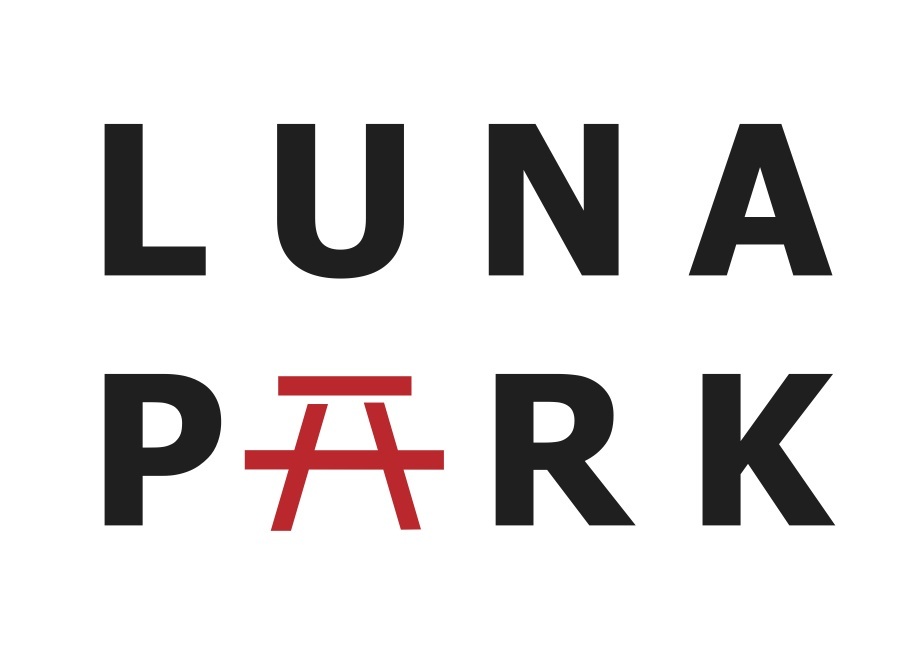
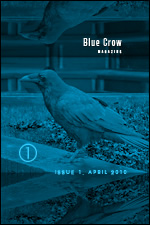
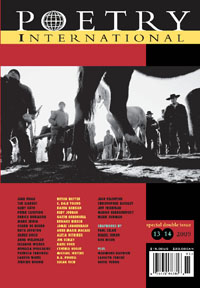

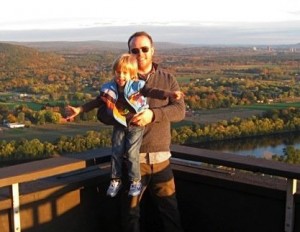 Jensen
Jensen